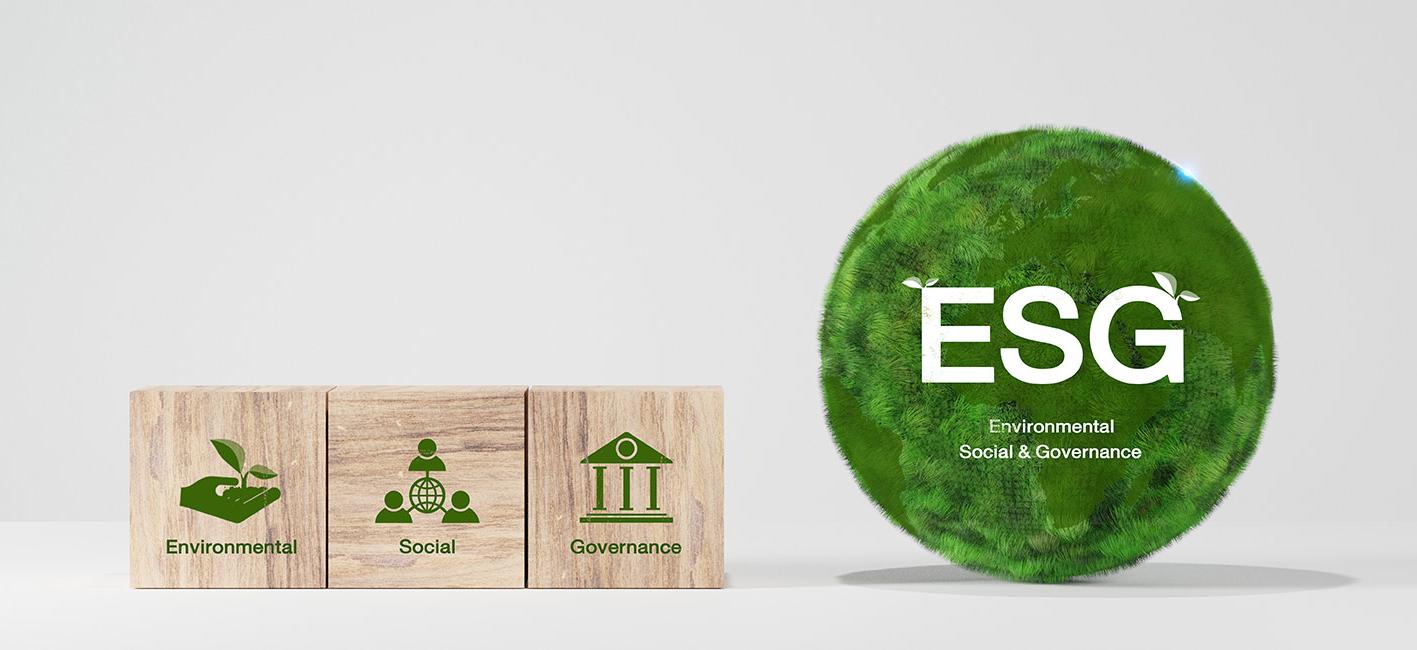


09.06.2025
Introduction
Whilst it is a fact that forests cover almost one-third of our planet’s land area and are home to most of all life on land; by purifying our oceans and air, forests are also essential to human health and safeguard the existence of future generations on Earth. Forests also generate more than 86 million green jobs and resources, including food and fuel, while also mitigating climate change and its detrimental effects[1].
However, the growing demand for certain agricultural activities and poorly planned infrastructure have brought with them a severe rise in deforestation and degradation in forests worldwide. In fact, as reported in the 2024 Forest Declaration Assessment[2], during 2023 the world lost almost 16 million acres of forest, an area larger than West Virginia. Deforestation brings with it serious and consequential effects on our Earth, such as the loss of biodiversity and an increase in the hazardous effects of climate change. It is for these reasons that the European Union has adopted its Deforestation Regulation 2023/1115[3] (‘EUDR’).
An Overview of the EUDR
The EUDR is a pivotal due diligence regulation and is part of the EU’s broader action plan to address and protect forests against deforestation and degradation. This initiative was first outlined in the 2019 Commission Communication on Stepping up EU Action to Protect and Restore the World’s Forests[4].
In its essence, the EUDR prohibits the importation, trading and exportation of certain products in the EU market unless it can be proven that such products are “deforestation-free”[5], have been produced in accordance with the relevant legislation of the country of production, and are accompanied by a ‘due diligence statement’[6].
As defined in Article 2(1) of the EUDR, the material scope of the EUDR covers relevant commodities such as “cattle, cocoa, coffee, palm oil, rubber, soya and wood”. However, the obligations also extend to ‘relevant products’ that are derived from these commodities, and include chocolate, printed paper, beef, furniture and other derivative products. By promoting the trading and consumption of such ‘deforestation-free’ commodities on the internal market and reducing the EU’s impact on global deforestation and forest degradation, the EUDR is expected to reduce the emission of greenhouse gases and prevent the loss of biodiversity[7].
Prior to placing relevant products on the EU market or exporting them, relevant operators must exercise due diligence in relation to all relevant products supplied by each particular supplier and are required to submit electronic due diligence statements (DDS) to an EUDR Information System[8] which statements are then reviewed internally interalia by the relevant regulatory authorities.
The EUDR devises a three-step process that needs to be adhered to when conducting this due diligence procedure. In-scope companies are required to:
On the other hand, traders also have certain obligations. The main requirement for traders is to retain data relating to the relevant products they intend to make available on the EU market, which data includes the name (including registered name if applicable), registered trademark, postal, e-mail and web address of the operators or traders who have supplied the relevant products to them, and to whom they have supplied relevant products themselves[9]. Furthermore, traders are also expected to collect and retain the reference numbers of the due diligence statements associated to those products.
The EUDR is applicable to large 'operators' (those placing the listed product or relevant commodity on the EU market for the first time) and 'traders' (those making the listed product or relevant commodity further available to the EU market). In fact, the EUDR applies to these market participants, regardless of the location of their establishment and their legal form.
The current thresholds for companies to qualify in-scope of the EUDR are those companies having 250 employees or more and/or an annual turnover of more than €50 million and/or a balance sheet total of more than €25 million (considered as ‘larger companies’) and those companies having fewer than 50 employed and either a turnover or balance sheet of less than €10 million (considered as ‘smaller companies’)[10].
The EUDR imposes penalties for non-compliance by in-scope companies. Such sanctions include fines of at least 4% of EU-derived turnover, confiscation of non-compliant products and associated revenues, and temporary exclusion from public procurement and public funding.
In the circumstance of repeated offences, sanctions include the prevention of marketing or exporting the relevant products and the prohibition of the use of certain simplification measures envisaged by the EUDR.
Although the EUDR initially entered into force on 29th June 2023, the EU postponed the original applicability date from the 31st December 2024 to the 31st December 2025. Applicability is however staggered. This initial applicability date applies to medium and large companies. In the case of micro-undertakings or small undertakings (SMEs) applicability has been further pushed back to the 30th June 2026.
This provides in-scope companies with more time to make the necessary amendments in their business models and supply chains to ensure compliance with the EUDR.
Further Recent Updates
On 15th April 2025 the European Commission released new Guidance Documents intended to assist in-scope companies, Member States’ authorities and authorities based in third countries in their efforts to facilitate and ensure compliance with the EUDR’s upcoming obligations. These Guidelines also ensure consistent implementation of the EUDR across all EU Member States and are further supplemented by the Commission’s press release[11], and the Frequently Asked Questions[12] (FAQs), which provide additional simplified measures and clarifications on how in-scope companies can demonstrate that their products are deforestation-free.
Furthermore, these guidance documents are also complemented with a draft Delegated Act on the EU Deforestation Regulation (EUDR)[13], which will become applicable on 31st December 2025 for large in-scope companies and 30th June 2026 for micro undertakings or SMEs. With this initiative, the EU Commission intends to amend the list of relevant commodities and products under Annex I of the EUDR by introducing limited and targeted technical fixes which are expected to reduce the administrative costs and burden for companies by 30%[14].
In addition, the EU Commission has also just adopted an Implementing Regulation[15], classifying countries into three risk categories, these being: low, standard and high risk.
The Guidance Documents
Some of the simplification measures[16] introduced by the Commission with the new guidance documents include the hereunder:
Finally, the guidance documents provide clarity on certain specifications, such as packing materials, harvesting rights, the scope of the “legality requirement” for the country of production, rentals, mixed goods, access to geolocation data and specific responsibilities for compliance of companies with onsite stands[17].
The Draft Delegated Act
As mentioned above, the Commission has also published a draft Delegated Act[18] which provides further clarification and scope adjustments requested by stakeholders.
The draft Delegated Act includes targeted fixes to the list of in-scope products in Annex I to the EUDR, most notably in relation to the following:
Implementation Regulation
On 22nd May 2025, the Commission has adopted an Implementing Regulation which classifies countries under the EUDR into three risk categories, these being low, standard and high risk.
Russia, North Korea, Belarus, Myanmar have been classified as high-risk countries, whilst 140 countries have been classed low risk, including all EU Member States, the United Kingdom, the United States, Canada, Japan, China, Australia and South Africa. Around 50 countries, including Indonesia, Malaysia or Brazil are classified as standard risk[20].
Countries are classified as low risk based on thresholds regarding deforestation rates, agricultural land expansion, and increased production of commodities linked to deforestation. Moreover, countries subject to UN Security Council or EU Council sanctions on imports or exports of the EUDR-relevant commodities and products are automatically classified as high-risk countries.
In practice, this classification determines whether operators can benefit from simplified due diligence obligations under Article 13 of the EUDR and dictates the level and standard of annual compliance checks to be carried out by supervisory authorities on imports and exports of EUDR in-scope products.
The classification system’s impact under the EUDR is mostly threefold:
Way Forward
The EUDR is a fundamental piece of green legislation which reflects the EU’s commitment to promote environmental sustainability and provides businesses an opportunity to thrive in a competitive market that is increasingly demanding deforestation-free practices.
Accordingly, whilst it is important that in-scope companies should continue monitoring and stay updated with the latest developments from the EU Commission, it is recommended that such businesses consider taking necessary pre-emptive measures, such as mapping out their supply chains to identity high-risk areas, preparing the necessary updated due diligence documentation and implementing efficient traceability systems, in order to stay on the forefront of these developments and ensure their compliance with the EUDR.
Author: Dr. Brandon Meli
Dingli & Dingli Law Firm is closely monitoring the developments on the EUDR and if you are an in-scope company interested in how these developments will affect you or require advisory in respect of the relevant reporting requirements, feel free to reach out to Dr. Meli on brandon@dingli.com.mt
[1] https://www.worldwildlife.org/threats/deforestation-and-forest-degradation
[2] https://forestdeclaration.org/resources/forest-declaration-assessment-2024/
[3] Regulation (EU) 2023/1115 of the European Parliament and of the Council of 31 May 2023 on the making available on the Union market and the export from the Union of certain commodities and products associated with deforestation and forest degradation and repealing Regulation (EU) No 995/2010 (Text with EEA relevance)
https://eur-lex.europa.eu/legal-content/EN/TXT/?uri=CELEX%3A32023R1115&qid=1687867231461
[4] https://eur-lex.europa.eu/legal-content/EN/TXT/?qid=1565272554103&uri=CELEX:52019DC0352
[5] “Deforestation-free” means that the land has been free from deforestation and forest degradation since 31 December 2020
[6] Article 3, Regulation (EU) 2023/1115
[7] https://www.lexology.com/library/detail.aspx?g=037c7e48-1b9b-4a22-b956-11e8b10bdabc
[8] https://green-forum.ec.europa.eu/deforestation-regulation-implementation/information-system-deforestation-regulation_en
[9] https://www.mondaq.com/uk/commoditiesderivativesstock-exchanges/1624554/beyond-the-forest-navigating-the-eus-deforestation-rules
[10] https://www.mondaq.com/uk/commoditiesderivativesstock-exchanges/1624554/beyond-the-forest-navigating-the-eus-deforestation-rules
[11] https://ec.europa.eu/commission/presscorner/detail/en/ip_25_1063
[12] https://circabc.europa.eu/ui/group/34861680-e799-4d7c-bbad-da83c45da458/library/e126f816-844b-41a9-89ef-cb2a33b6aa56/details
[13] Delegated Regulation amending Annex I of Regulation (EU) 2023/1115 (EU Deforestation Regulation) https://ec.europa.eu/info/law/better-regulation/have-your-say/initiatives/14655-Delegated-Regulation-amending-Annex-I-of-Regulation-EU-2023-1115-EU-Deforestation-Regulation-_en
[14] https://ec.europa.eu/commission/presscorner/detail/en/ip_25_1063
[15] COMMISSION IMPLEMENTING REGULATION laying down rules for the application of Regulation (EU) 2023/1115 of the European Parliament and of the Council as regards a list of countries that present a low or high risk of producing relevant commodities for which the relevant products do not comply
with Article 3, point (a), https://environment.ec.europa.eu/publications/commission-implementing-regulation-laying-down-rules-application-deforestation-regulation_en
[16] https://ec.europa.eu/commission/presscorner/detail/en/ip_25_1063
[17] https://sustainablefutures.linklaters.com/post/102k943/eu-commission-publishes-new-guidance-and-draft-delegated-act-to-simplify-due-dil
[18] Delegated Regulation amending Annex I of Regulation (EU) 2023/1115 (EU Deforestation Regulation) https://ec.europa.eu/info/law/better-regulation/have-your-say/initiatives/14655-Delegated-Regulation-amending-Annex-I-of-Regulation-EU-2023-1115-EU-Deforestation-Regulation-_en
[19] https://sustainablefutures.linklaters.com/post/102k943/eu-commission-publishes-new-guidance-
and-draft-delegated-act-to-simplify-due-dil
[20] https://green-forum.ec.europa.eu/deforestation-regulation-implementation/eudr-cooperation-and-partnerships/country-classification-list_en
[21] https://sustainablefutures.linklaters.com/post/102kcd4/eu-deforestation-regulation-country-risk-classification-adopted-by-the-commissio
[22] Article 10(2)(a) EUDR).